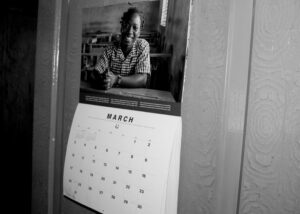Let Wet’suwet’en exercise their right to self-determination
Re: “Who do you support when a community is divided?” Feb. 17, page 20.
I appreciate Canadian Mennonite opening up the dialogue on the Wet’suwet’en and Coastal Gas issue from a variety of perspectives. This settler dialogue is long overdue, as Indigenous revitalization of identity, culture and the recognition of their inherent rights become stronger.
However, the historical evolution of their struggle for self-determination and self-sufficiency is often overlooked. This struggle reminds me of the parable of the widow and the unjust ruler in Luke 18: 1-8. The widow’s resolute demand for justice is at first dismissed by the self-interested judge. When she refuses to let her case drop, the judge eventually gives her the justice she is entitled to.
Similarly, Indigenous persistence in their struggle for justice is finally acknowledged legally and in social policy. Indigenous identity and inherent rights, long shunted onto a neglected railway siding, have finally left the station and are making their way to your town and mine, inviting us to get on board the decolonizing and reconciliation train. This remains a work in progress that has many moving parts.
I am not surprised at the tension among the Wet’suwet’en over the proposed agreement with the B.C. and Canadian governments. It is incumbent on settler society, and especially Christian churches, to suspend judgment as the Wet’suwet’en exercise their right to self-determination affecting their traditional territory and its resources.
The critical questions for me are:
- Will the church fully embrace reconciliation with God, all our neighbours and the Earth, as the central point of the good news of the gospel?
- Will the church harness its considerable privilege to decolonize itself by supporting the efforts of Indigenous people to achieve a measure of social, political and economic justice in Canadian society?
—Johann Funk, Surrey, B.C.
God is also exclusive
Re: “God is inclusive, not exclusive!” March 2, page 9.
I respect Donna Entz for pointing out that God’s love reaches every person, including me. However, in his Word, God also tells us that he is holy. Jesus also tells us that he is “the Way, the Truth and the Life.” And then Jesus promises his followers that he will send the Holy Spirit, the Comforter.
These characteristics of our Triune God reveal to us that God is also exclusive. I find it amazing how God applies his exclusivity to make us holy, to find the way, to experience the truth, to inherit life and to be comforted in our state of exclusion to be included in his kingdom.
It looks to me that God is exclusively inclusive, with his gracious, inclusive agape love.
—Erwin Strempler, Calgary
Will Braun ‘nails it’ with his Easter feature
Re: “Out of holy weakness, mysterious power arises,” March 16, page 4.
I appreciate Will Braun’s creative way of interviewing pastors regarding the cross and resurrection as posed to 12-year-olds. Brilliant. Then, with all due respect to the interviewees, Braun the journalist himself nails it better than I have heard from any preacher in the near or distant past.
In these recent years of denominational reorganization and program cuts, he ventures straight into some urgent theology that is mostly being avoided these days! If pastors have problems with Jesus dying for our sins, and don’t want to use traditional language, whatever is wrong with just stating it the way it’s described in the Bible: “[Jesus] died not with a fist in the air, but with arms spread helpless. Out of holy weakness, mysterious power arises.”
After hearing that I am so ready for resurrection! I know for a fact that no 12-year-old or senior citizen, whether devout Christian or agnostic, will take offence.
And I would recommend this writer as guest speaker for “deeper life” services in one of our churches somewhere.
—Jacob Froese, Calgary
Messages to repent needed at this time
Re: “Love in the time of COVID-19” feature, March 30, page 4.
My heart is warmed that Bibles are selling well right now at Walmart in the United States, where COVID-19 is rampant. No doubt the increased sales of Bibles is a response from people who are gripped with fear and uncertainty over the coronavirus. It is my prayer that they will find comfort, hope and light in the pages of God’s Word.
I’ve been researching what is being taught from “virtual pulpits” these days in the hope of finding many pastors demonstrating love to their people by preaching the gospel of Jesus Christ with a strong message of repentance. Instead, I’ve found some pastors acknowledging their hearers’ anxiety with empathy, but without emphasizing trust in Jesus Christ through these uncertain times. Perhaps some uncertainties and fears were eased superficially for the moment, but I believe that more than that is needed—especially right now.
On the upside, an unknown man said this about what we are doing right now: “God has eternity in mind. . . . God knocks hard on the doors of hard hearts. That’s one of the things God is doing here. This is not judgment on any particular people or country. It’s a wakeup call to all, whether you’ve known the gospel and turned aside, or never really heard. This is God knocking.”
I believe this man was speaking out of concern and love for others and I appreciate his candour. The vitally important message of repentance needs to be heard often.
—Elaine Fehr (online comment)
Coronavirus fear and suffering
What if we saw our current pandemic situation from a different perspective? A blessing perhaps? That doesn’t make much sense at such a time.
A short while ago I had a dream. I was at a lecture and the speaker asked: “Enos, what does ‘con-blessing’ mean?” It was dark, and I saw and heard nothing else. What does “con-blessing” mean? The next day I began to search, and this is what I found. “Con,” as in “pro and con,” means “a disadvantage of, or argument against something.
Could our current situation of isolation and fear be a “con-blessing” to help us become more understanding and caring of what many have and are experiencing:
- Refugees in camps or fleeing danger and leaving friends and relatives behind?
- Homeless people who have no home to isolate in?
- For those with little hope of there ever being any change?
Perhaps in every contrary thing in our lives there lurks a hidden blessing.
—Enos Kipfer, London, Ont.







Leave a Reply
You must be logged in to post a comment.